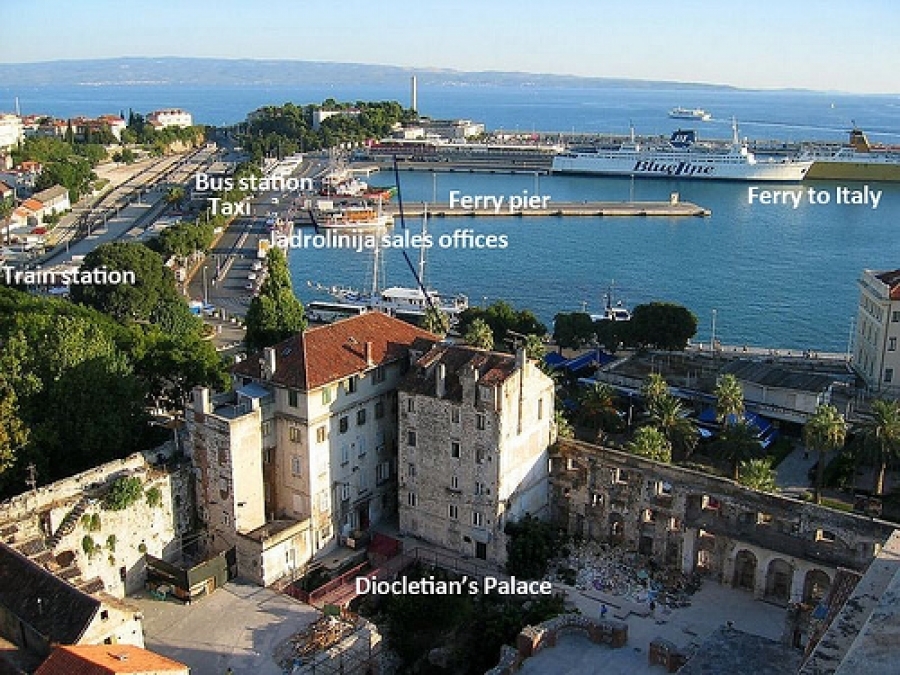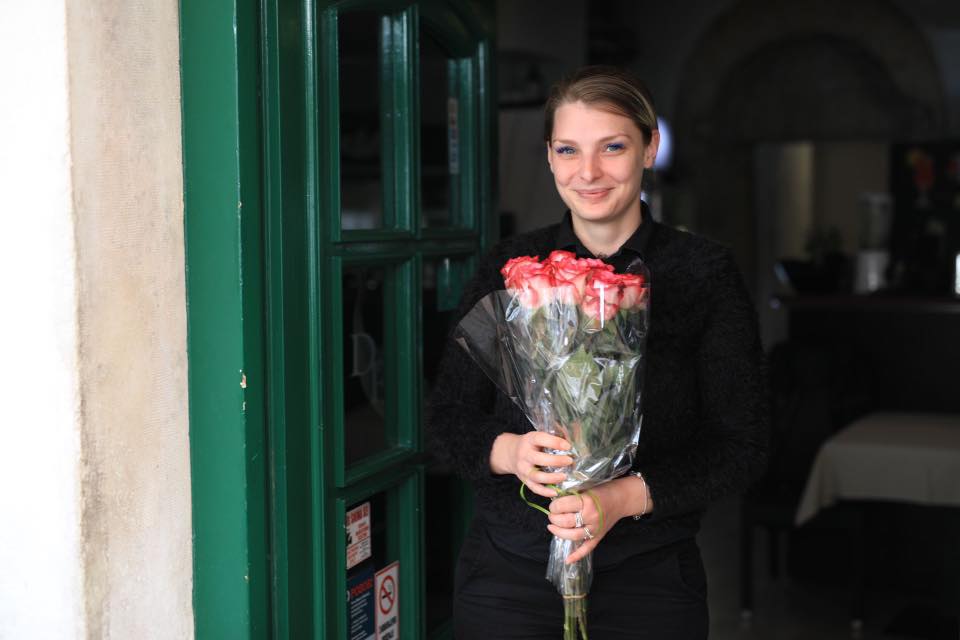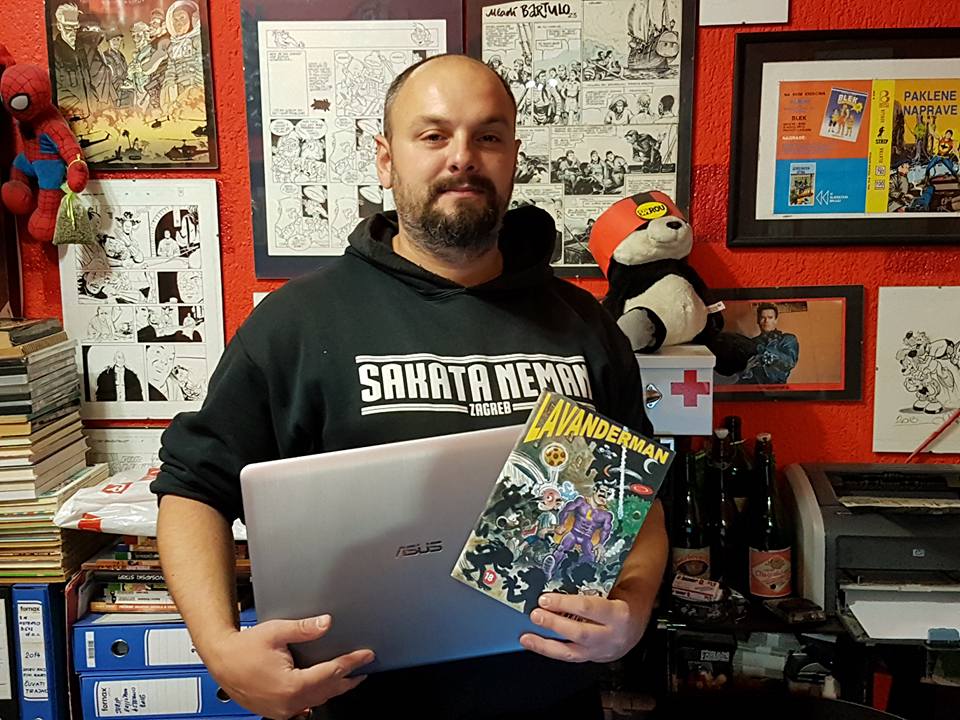October 11, 2019 – The land of sun and sea, but also the land of kindness of strangers and safety – Croatia’s under-promoted tourism jewels.
One of the things I like about working in the media in Croatia is TCN’s position of being local and being foreign – local knowledge with a foreign eye. It means that while we understand how things work in Croatia, we also have an understanding of what foreigners – and in particular – tourists are looking for in terms of information. One simple example of this was soon after we started Total Split.
As a foreigner, I knew how complicated and confusing it was for tourists looking to buy ferry and catamaran tickets, but as a local I knew how easy it was – locals had simply grown up with the system.

A simple guide for tourists ensued (and needs to be updated…), which has proved very popular over the years, with many locals seeing the value of it and placing a link on their accommodation websites.

And so to last week. A tourist from Minnesota posted on his personal Facebook page about the kindness of waitress Ana from Restaurant Riva in Trogir. Having left his wallet at the restaurant the next day, he returned not expecting it still to be there with all the money inside. But that is exactly what he found as Ana returned the wallet to him. She refused a tip and so the tourist bought her flowers instead. A nice story which many locals would take as standard, for this kind of thing happens often in Croatia. And while it also happens in other countries of course, it is sadly increasingly rare in the Western world. Someone tagged me in the original Facebook post, suggesting it would make a great story. I agreed, and 20 minutes later, What Happens If You Leave Your Wallet in a Restaurant in Trogir, Croatia was live. Apart from telling the story, a chance also to put in some images of gorgeous Trogir and a link to a more detailed article on this UNESCO World Heritage Site.
Having learned how the Croatian media works after several years of running TCN, my work did not end there – a link sent to a couple of people with connections with the decision-makers in certain publications, and I sat back and watched the story unfold – Slobodna, Dalmacija Danas, Jutarnji, Index – a nice positive story to lighten the day.

There were plenty of reactions to the story, and two of the main themes got me thinking. The first was the number of locals who didn’t think that this was much of a story, for what Ana had done was second nature in Croatian society. And the second response was from the considerable number of people who added their own anecdotes of how they had left things – money, cameras, laptops – only to return and find them where they left them. Something which many concluded would simply not happen these days in their home country.
Every foreigner I know here has a similar story, and I have lost count of the number of times I have left something in a bar, only to return and find it still there. Perhaps my finest hour in this respect was last year after a cold one too many when I realised the next morning in Varazdin that my laptop had fallen out of my backpack somewhere in the streets of Zagreb. While I was contemplating how I would survive the loss of the machine that fed the family, I received a message on Facebook asking if I had lost a laptop in Zagreb. Expecting this to be the start of an intricate blackmailing process for cash, I could not have been more wrong. And two hours later, I was reunited with my laptop, one which had been repaired by the kind stranger who had found it abandoned in a street in central Zagreb. It is one of my favourite stories of my 17 years in Croatia.
The kindness of strangers is something I have become used to over the years in Croatia, as has the safety. Truly, there is no better place in the world to bring up children in those impressionable early years. Starting life on the idyllic island of Hvar, surrounded by nature, community and learning to swim at the age of three, childhood in Croatia is still As It Once Was.
I have had several conversations in recent weeks with returnee Croats, several of whom have returned with family. As a place to bring up family, Croatia was easily the safest option to bring up a family. There was no part of Zagreb I am afraid to walk late at night, said one, and I certainly couldn’t say that of Sydney.
And with the digital and remote worker revolution around the corner potentially addressing one of the biggest causes of the crushing emigration in Croatia – jobs – a key aspect to making this happen is to communicate the message that Croatia is a safe place to bring up families, where the kindness of strangers is the norm and not the exception. While locals may realise that Croatia is a kind and safe society, the message needs to be exported.
This theme of how Croatians want tourists to see them and what tourists actually experience came into focus at the recent Croatia 365 conference in Zagreb. Katarina Milicevic from thinktank Think Tourism took the example of gastronomy. Many of the conference participants agreed with her suggestion that gastronomy was Croatian tourism’s most important offer after sun and sea. As a scientist, Milicevic went on to present some results of social media analysis of the promotion of Croatian gastronomy in official tourism promotion. In a recent interview with Poslovni, Milicevic explained one of the reasons why Croatia’s average tourism spend of 86 euro was a lot lower than some of the neighbours – while Croatia believed that it was a gourmet destination, it was doing a very poor job at projecting that gourmet image, so that arriving tourists were unaware.
According to the Milicevic interview in Poslovni, she analysed the social media of the Croatian National Tourism Board over 12 months, and the results told their own story of how gastronomy was perceived as a pillar of Croatian tourism excellence. Of the 1,100 Instagram posts, just 20 were related to food and wine, of the 440 Facebook posts, just 15 were related to gastronomy. Little wonder that tourists arrive with low gourmet expectations, perhaps.
The good news is that all this is easy to fix. Croatia, the lifestyle destination – for tourism, bringing up young families, remote living – it has so much to offer.
We just need to be a bit better at communicating the message of the treasures we possess. And the currency of the kindness of strangers and safety are increasingly in demand in this crazy world.
Thinking about moving to Croatia? Here is the Total Croatia Living in Croatia guide to give you a little more info.







